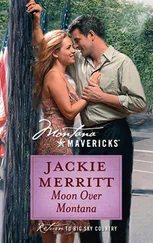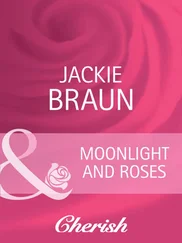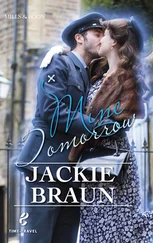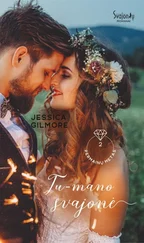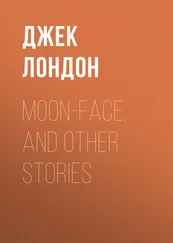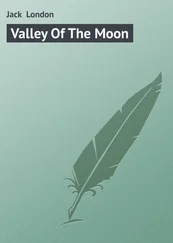Jack Lodon - Moon-face
Здесь есть возможность читать онлайн «Jack Lodon - Moon-face» весь текст электронной книги совершенно бесплатно (целиком полную версию без сокращений). В некоторых случаях можно слушать аудио, скачать через торрент в формате fb2 и присутствует краткое содержание. Жанр: Классическая проза, на английском языке. Описание произведения, (предисловие) а так же отзывы посетителей доступны на портале библиотеки ЛибКат.
- Название:Moon-face
- Автор:
- Жанр:
- Год:неизвестен
- ISBN:нет данных
- Рейтинг книги:4 / 5. Голосов: 1
-
Избранное:Добавить в избранное
- Отзывы:
-
Ваша оценка:
- 80
- 1
- 2
- 3
- 4
- 5
Moon-face: краткое содержание, описание и аннотация
Предлагаем к чтению аннотацию, описание, краткое содержание или предисловие (зависит от того, что написал сам автор книги «Moon-face»). Если вы не нашли необходимую информацию о книге — напишите в комментариях, мы постараемся отыскать её.
Moon-face — читать онлайн бесплатно полную книгу (весь текст) целиком
Ниже представлен текст книги, разбитый по страницам. Система сохранения места последней прочитанной страницы, позволяет с удобством читать онлайн бесплатно книгу «Moon-face», без необходимости каждый раз заново искать на чём Вы остановились. Поставьте закладку, и сможете в любой момент перейти на страницу, на которой закончили чтение.
Интервал:
Закладка:
"Oh, Chris!" Lute cried impulsively. "This afternoon! The hand you said must have seized your rein!"
"But I was joking," he objected.
"Nevertheless…" Lute left her thought unspoken.
Mrs. Grantly had become keen on the scent. "What was that about this afternoon? Was your life in danger?"
Chris's drowsiness had disappeared. "I'm becoming interested myself," he acknowledged. "We haven't said anything about it. Ban broke his back this afternoon. He threw himself off the bank, and I ran the risk of being caught underneath."
"I wonder, I wonder," Mrs. Grantly communed aloud. "There is something in this…. It is a warning…. Ah! You were hurt yesterday riding Miss Story's horse! That makes the two attempts!"
She looked triumphantly at them. Planchette had been vindicated.
"Nonsense," laughed Uncle Robert, but with a slight hint of irritation in his manner. "Such things do not happen these days. This is the twentieth century, my dear madam. The thing, at the very latest, smacks of mediaevalism."
"I have had such wonderful tests with Planchette," Mrs. Grantly began, then broke off suddenly to go to the table and place her hand on the board.
"Who are you?" she asked. "What is your name?"
The board immediately began to write. By this time all heads, with the exception of Mr. Barton's, were bent over the table and following the pencil.
"It's Dick," Aunt Mildred cried, a note of the mildly hysterical in her voice.
Her husband straightened up, his face for the first time grave.
"It's Dick's signature," he said. "I'd know his fist in a thousand."
"'Dick Curtis,'" Mrs. Grantly read aloud. "Who is Dick Curtis?"
"By Jove, that's remarkable!" Mr. Barton broke in. "The handwriting in both instances is the same. Clever, I should say, really clever," he added admiringly.
"Let me see," Uncle Robert demanded, taking the paper and examining it. "Yes, it is Dick's handwriting."
"But who is Dick?" Mrs. Grantly insisted. "Who is this Dick Curtis?"
"Dick Curtis, why, he was Captain Richard Curtis," Uncle Robert answered.
"He was Lute's father," Aunt Mildred supplemented. "Lute took our name. She never saw him. He died when she was a few weeks old. He was my brother."
"Remarkable, most remarkable." Mrs. Grantly was revolving the message in her mind. "There were two attempts on Mr. Dunbar's life. The subconscious mind cannot explain that, for none of us knew of the accident to-day."
"I knew," Chris answered, "and it was I that operated Planchette. The explanation is simple."
"But the handwriting," interposed Mr. Barton. "What you wrote and what Mrs. Grantly wrote are identical."
Chris bent over and compared the handwriting.
"Besides," Mrs. Grantly cried, "Mr. Story recognizes the handwriting."
She looked at him for verification.
He nodded his head. "Yes, it is Dick's fist. I'll swear to that."
But to Lute had come a visioning. While the rest argued pro and con and the air was filled with phrases,—"psychic phenomena," "self-hypnotism," "residuum of unexplained truth," and "spiritism,"—she was reviving mentally the girlhood pictures she had conjured of this soldier-father she had never seen. She possessed his sword, there were several old-fashioned daguerreotypes, there was much that had been said of him, stories told of him—and all this had constituted the material out of which she had builded him in her childhood fancy.
"There is the possibility of one mind unconsciously suggesting to another mind," Mrs. Grantly was saying; but through Lute's mind was trooping her father on his great roan war-horse. Now he was leading his men. She saw him on lonely scouts, or in the midst of the yelling, Indians at Salt Meadows, when of his command he returned with one man in ten. And in the picture she had of him, in the physical semblance she had made of him, was reflected his spiritual nature, reflected by her worshipful artistry in form and feature and expression—his bravery, his quick temper, his impulsive championship, his madness of wrath in a righteous cause, his warm generosity and swift forgiveness, and his chivalry that epitomized codes and ideals primitive as the days of knighthood. And first, last, and always, dominating all, she saw in the face of him the hot passion and quickness of deed that had earned for him the name "Fighting Dick Curtis."
"Let me put it to the test," she heard Mrs. Grantly saying. "Let Miss Story try Planchette. There may be a further message."
"No, no, I beg of you," Aunt Mildred interposed. "It is too uncanny. It surely is wrong to tamper with the dead. Besides, I am nervous. Or, better, let me go to bed, leaving you to go on with your experiments. That will be the best way, and you can tell me in the morning." Mingled with the "Good-nights," were half-hearted protests from Mrs. Grantly, as Aunt Mildred withdrew.
"Robert can return," she called back, "as soon as he has seen me to my tent."
"It would be a shame to give it up now," Mrs. Grantly said. "There is no telling what we are on the verge of. Won't you try it, Miss Story?"
Lute obeyed, but when she placed her hand on the board she was conscious of a vague and nameless fear at this toying with the supernatural. She was twentieth-century, and the thing in essence, as her uncle had said, was mediaeval. Yet she could not shake off the instinctive fear that arose in her—man's inheritance from the wild and howling ages when his hairy, apelike prototype was afraid of the dark and personified the elements into things of fear.
But as the mysterious influence seized her hand and sent it meriting across the paper, all the unusual passed out of the situation and she was unaware of more than a feeble curiosity. For she was intent on another visioning—this time of her mother, who was also unremembered in the flesh. Not sharp and vivid like that of her father, but dim and nebulous was the picture she shaped of her mother—a saint's head in an aureole of sweetness and goodness and meekness, and withal, shot through with a hint of reposeful determination, of will, stubborn and unobtrusive, that in life had expressed itself mainly in resignation.
Lute's hand had ceased moving, and Mrs. Grantly was already reading the message that had been written.
"It is a different handwriting," she said. "A woman's hand. 'Martha,' it is signed. Who is Martha?"
Lute was not surprised. "It is my mother," she said simply. "What does she say?"
She had not been made sleepy, as Chris had; but the keen edge of her vitality had been blunted, and she was experiencing a sweet and pleasing lassitude. And while the message was being read, in her eyes persisted the vision of her mother.
"Dear child," Mrs. Grantly read, "do not mind him. He was ever quick of speech and rash. Be no niggard with your love. Love cannot hurt you. To deny love is to sin. Obey your heart and you can do no wrong. Obey worldly considerations, obey pride, obey those that prompt you against your heart's prompting, and you do sin. Do not mind your father. He is angry now, as was his way in the earth-life; but he will come to see the wisdom of my counsel, for this, too, was his way in the earth-life. Love, my child, and love well.—Martha."
"Let me see it," Lute cried, seizing the paper and devouring the handwriting with her eyes. She was thrilling with unexpressed love for the mother she had never seen, and this written speech from the grave seemed to give more tangibility to her having ever existed, than did the vision of her.
"This IS remarkable," Mrs. Grantly was reiterating. "There was never anything like it. Think of it, my dear, both your father and mother here with us tonight."
Lute shivered. The lassitude was gone, and she was her natural self again, vibrant with the instinctive fear of things unseen. And it was offensive to her mind that, real or illusion, the presence or the memorized existences of her father and mother should be touched by these two persons who were practically strangers—Mrs. Grantly, unhealthy and morbid, and Mr. Barton, stolid and stupid with a grossness both of the flesh and the spirit. And it further seemed a trespass that these strangers should thus enter into the intimacy between her and Chris.
Читать дальшеИнтервал:
Закладка:
Похожие книги на «Moon-face»
Представляем Вашему вниманию похожие книги на «Moon-face» списком для выбора. Мы отобрали схожую по названию и смыслу литературу в надежде предоставить читателям больше вариантов отыскать новые, интересные, ещё непрочитанные произведения.
Обсуждение, отзывы о книге «Moon-face» и просто собственные мнения читателей. Оставьте ваши комментарии, напишите, что Вы думаете о произведении, его смысле или главных героях. Укажите что конкретно понравилось, а что нет, и почему Вы так считаете.





